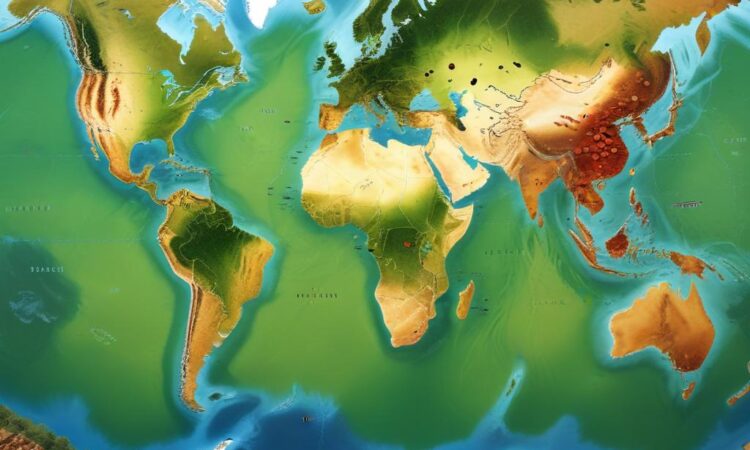Food Security Concerns: A Global Crisis
The world is facing a growing food security crisis, driven by a confluence of factors that are putting immense pressure on global food systems. The ongoing war in Ukraine, a major agricultural exporter, has disrupted supply chains and driven up prices for key commodities like wheat and sunflower oil. Climate change is also playing a significant role, with extreme weather events like droughts and floods impacting crop yields and livestock production in various regions.
Beyond these immediate challenges, supply chain disruptions and global trade tensions are further exacerbating the situation. The COVID-19 pandemic exposed vulnerabilities in food supply chains, leading to shortages and price volatility. Rising transportation costs and logistical bottlenecks are also contributing to the crisis.
The consequences of this food security crisis are far-reaching and deeply concerning. Millions of people around the world are experiencing rising food prices and shortages, particularly in vulnerable populations who rely heavily on affordable staple foods. The World Food Programme (WFP) estimates that over 345 million people are currently facing acute food insecurity, a significant increase from previous years.
The Impact on Vulnerable Populations
The impact of the food security crisis is most acutely felt by vulnerable populations, including low-income households, children, pregnant women, and refugees. Rising food prices are eroding household incomes, forcing families to make difficult choices between essential needs like food, healthcare, and education.
Malnutrition and hunger are also on the rise, with millions of children suffering from stunted growth and cognitive development due to inadequate nutrition. The situation is particularly dire in countries experiencing conflict, drought, and other humanitarian crises, where food access is severely restricted.
Challenges to Food Production and Distribution
The current food security crisis highlights the vulnerabilities in global food systems and the need for comprehensive solutions. The war in Ukraine has disrupted the production and export of essential agricultural commodities, while climate change is posing increasing challenges to food production in many regions.
Rising fertilizer prices and shortages are also affecting crop yields, as farmers struggle to maintain productivity in the face of rising input costs. Additionally, the availability and affordability of food are being affected by transportation disruptions and supply chain bottlenecks, further exacerbating the crisis.
The Role of International Organizations
International organizations like the Food and Agriculture Organization (FAO) and the World Food Programme (WFP) are playing a critical role in responding to the global food security crisis. The FAO is working to support farmers and food producers, while the WFP is providing emergency food assistance to those in need.
These organizations are also advocating for policy changes to address the underlying causes of the crisis, including investing in sustainable agriculture, strengthening food systems, and tackling climate change. International cooperation and coordinated efforts are essential to ensure a sustainable and resilient food system for all.
Potential Solutions and Recommendations
Addressing the global food security crisis requires a multifaceted approach that tackles both immediate needs and long-term challenges. Some key solutions include:
- Supporting agricultural production and distribution: Investing in sustainable agricultural practices, providing farmers with access to inputs and technology, and improving infrastructure for food transportation and storage are crucial for enhancing food production and distribution.
- Strengthening food systems resilience: Investing in research and development, promoting diversification of crops and livestock, and developing early warning systems for climate-related risks can help to build resilience in food systems.
- Addressing climate change: Reducing greenhouse gas emissions and mitigating the impacts of climate change are essential for ensuring food security in the long term. This includes promoting sustainable agriculture, protecting forests, and investing in renewable energy.
- Improving food access and distribution: Tackling poverty and inequality, addressing conflict and humanitarian crises, and providing social safety nets can improve food access for vulnerable populations.
- International cooperation: Collaborative efforts between governments, international organizations, and private sector actors are crucial to address the global food security crisis. This includes sharing best practices, providing financial support, and coordinating responses to humanitarian emergencies.
The global food security crisis demands urgent action and a commitment to sustainable and equitable solutions. By working together, we can ensure that everyone has access to safe, nutritious, and affordable food, now and in the future.

